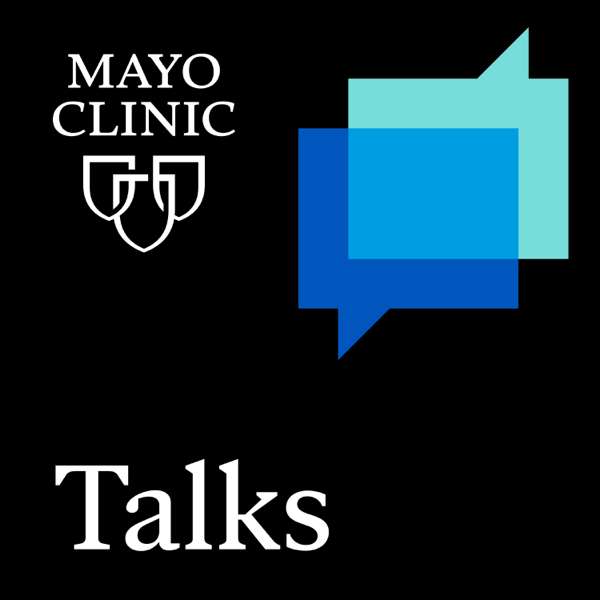Session 77
Today's question taken directly from the OldPreMeds.org forum is from a female nontrad student who is looking to possibly restart her postbac after starting it poorly about 5 years ago. She’s also thinking about applying to just 1 school.
[01:35] OldPreMeds Question of the Week: Her Backstory
"I obtained my B.A. in Anthropology in the Midwest many moons ago, worked as an on-camera model/actress to pay rent in my undergrad. Upon graduating, my agent sent me to LA where I worked for three years as a model and actress.
I moved back to the Midwest to begin my nontrad premed journey as a single gal when I was about 28 years old at the same school from where I obtained my BA."
[02:02] Similar to Jessica's Story
This is similar to Jessica's story back on The Premed Years Podcast Session 168. She was a former actress and did her Bachelor of Arts at NYU, lived in L.A. as an actress, and then she decided she wanted to be a doctor and then got ten acceptances.
[02:27] Suffering Grades
"It is a large university with a medical campus, undergraduate campus, and teaching and research hospital. I was so eager and motivated to be involved in all things medicine that I began working, or shall I say, living in a laboratory for a cardiologist. I literally craved to be there. I would beg my mentor to let me hop on rounds with him. I was eager to be in the lab to perform science to think to shadow and was ferociously stubborn about my goals. However, my tenacity for the hands-on work at the labs/hospital caused my postbac grade to suffer. Nothing too horrible but a few C's and mostly B's."
[03:06] Too Much on Your Plate
Postbac and C's and B's, that is kind of horrible. It is not very good for a postbac. When you're doing a postbac, the assumption is you've got to shoot for a 4.0. Obviously, you don't have to be perfect. But your goal is a 4.0 especially for nontrads who are trying to fix early grades.
As I've discussed before, one of the greatest mistakes premeds make is having too much on your plate that your grades suffer. You can hardly fix grades which means you can fix your grades but with more classes. But it's always average so you can't just replace anymore. Research and clinical experience can always be added.
[04:18] Poster's Questions
"Fast-forward a few years at 30 years old. After publishing much of my research, I met my husband. He plays in the NFL in our home city and has been for nine years now. His job is anything but traditional and the schedule in life is nothing short of hectic. These past few years, we have been married, traveled, settled into a home, and are thinking about a family soon. Even with all of this, I still have the itch. I am now 33 and wish to continue my journey. I'm so thankful for this website.
Should I do a postbac for my postbac? My grades were average at best, relatively speaking, but since so much had passed and I wish to perform well on the MCAT. Should I simply start over? My AMCAS GPA isn't the greatest, around 3.3 cumulative, 3.2 BCPM. I've not taken Orgo or Biochem. The classes were upwards of five years ago. So part of me wishes to start fresh for the MCAT and so admissions committees can see me ace these classes now. Or should I redo only the classes in which I didn't do well, continue to take o-chem and biochem and attack on some more upper levels?"
[05:33] Start Fresh
You can't really start fresh because those grades are going to be there. You're going to have to report those. Any classes you're going to retake are going to be averaged in. Yes, you can redo some of the classes you didn't do well in and hopefully you get better grades in those and it's still going to be averaged. The only difference is you're not repeating all of the courses.
It depends on whether you're talking about a formal postbac or do-it-yourself. If you're referring to a do-it-yourself, I probably wouldn't go back and repeat everything. Definitely repeat those with C's to try to get those up.
Could you repeat everything and start fresh and hope for a 4.0? Sure, that's going to take a little longer and it's going to be more expensive although it may not be a problem for you financially having a husband who plays in the NFL. So it's awesome to have that financial stability.
[06:57] Retake Classes
Contact the school that you're applying to or interested in applying to. If you're applying to several medical schools, figure out if they're okay with older grades. I've talked to a lot of nontrads who have 10-year old and 20-year old grades. Some say it's not a problem and not to worry about it while others want something within five years.
Moreover, retaking your classes would help you on the MCAT. The best way to start preparing for the MCAT is to do well in your undergrad, your core science courses. So if you retake those with a better foundation, better study habits, less time commitment, you will obviously do better.
I don't know if I'd repeat them all. Repeat those C's of course and then figure everything else out. Keep that AMCAS calculator open to see how it's affecting your GPA.
[08:18] Geographical Restriction
"I'm terrified. My husband's career could be seen as a silent blessing for my journey because we have the financial security to support a family and allow me time for my studies without worry. However, there is one medical school in our city and is my first and foremost choice to attend because our families are here and we wish to continue to settle here. The risk is great for limiting myself to one school. And to be clear, it isn't just the geographical location of the school that makes it number one on my list. It is my top choice for many reasons. I'll save those for another post to reapplying year after year however. So if there is anyone out there who has advice on a perplexing situation such as mine, it would be helpful."
[09:10] Applying to One School is Very Risky
This is a unique situation with the poster's husband being in NFL and being in the city he is in now. Some of you may have that same situation since I've talked to spouses whose husbands and wives are in the military. You're in once city. But are you still going to be in that same city in two years?
For this student, her husband in the NFL and they have trades in the NFL and cuts. Keep in mind that the limitation to one school is understandable to some extent but you're putting all your eggs in one basket.
With the off-chance that your husband gets traded or let go or cut, whatever, immediately after you applied to that one school, what happens next? You move to another city and maintain your current residence in your current city. How does that work? Think about that as well. Applying to one school is very, very risky.
[10:35] Talk to the Admissions Committee
I helped a student this year who applied to two school. Last year, she applied to one and didn't get in. This year, she applied to two and she got into the original she wanted to go to. We made it work.
So what I had her do is to go and talk to people. This poster talked about doing research for the cardiologist and doing tons of stuff. So go and talk to those people and let them know you're applying. Ask them who they know and who can you talk to. Go to the admissions committee. Talk to them and tell them why you want to come to that school and ask them what you need to do.
They're going to be somewhat restrictive in what they can tell you. They can never guarantee you an acceptance but they can help guide you. They are there to help you. They want the best students to apply to their school and if they can help form that best student in you, why not? When you are going to a limited number of schools for whatever reasons, go and get to know the school as much as possible.
[12:12] Form Great Connections
Back in The Premed Years Podcast Episode 74, I talked with Carie, a nontrad premed. Her husband was a helicopter pilot for the army and contractor. So he was always being deployed and Carie was very limited taking care of family and working. She was very limited of what she could do. She also had some geographic restrictions and some issues with taking classes only at a community college.
What she did was she formed great relationships with the admissions committees at a few school she was willing to apply to and told them who she was and what she was doing and asked for their feedback and she kept checking in with them semester after semester after semester and eventually she gained her acceptance into medical school. So go and form those connections because they're very important.
Links:
The Premed Years Podcast Session 168
The Premed Years Podcast Episode 74
MedEd Media Network
The Premed Years Podcast
The MCAT Podcast
Specialty Stories

 Our TOPPODCAST Picks
Our TOPPODCAST Picks  Stay Connected
Stay Connected






